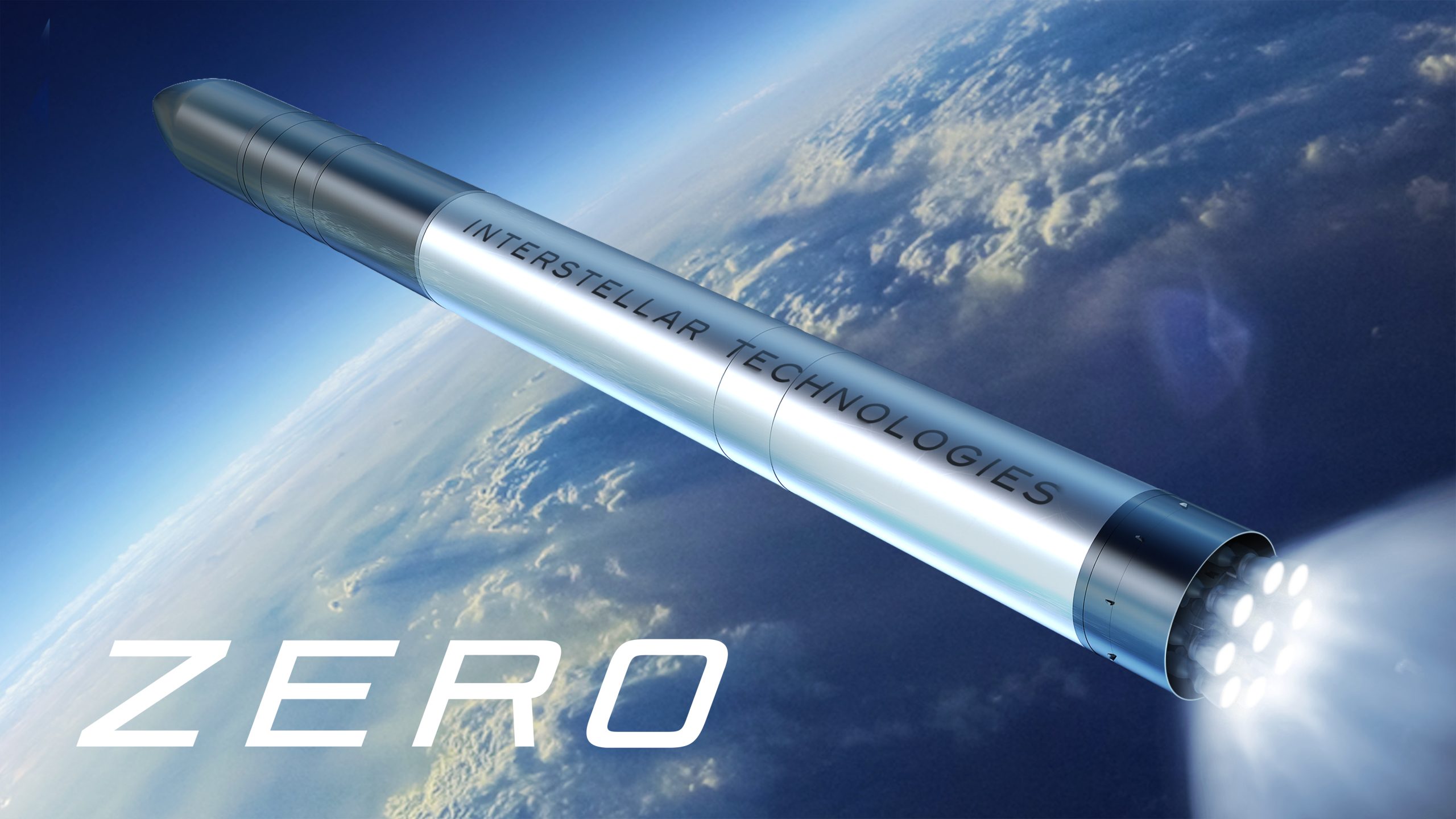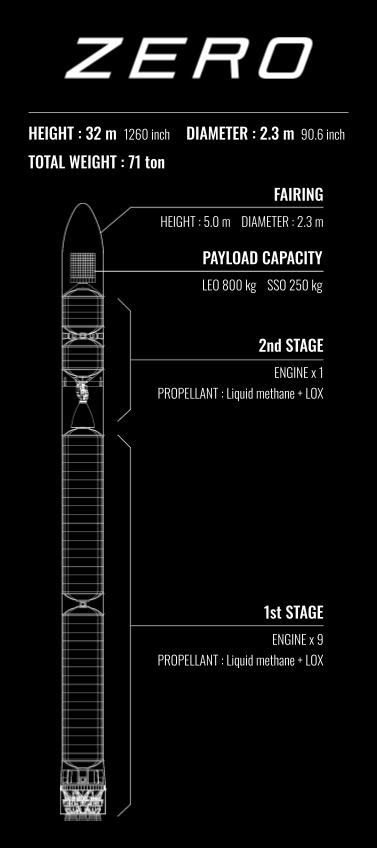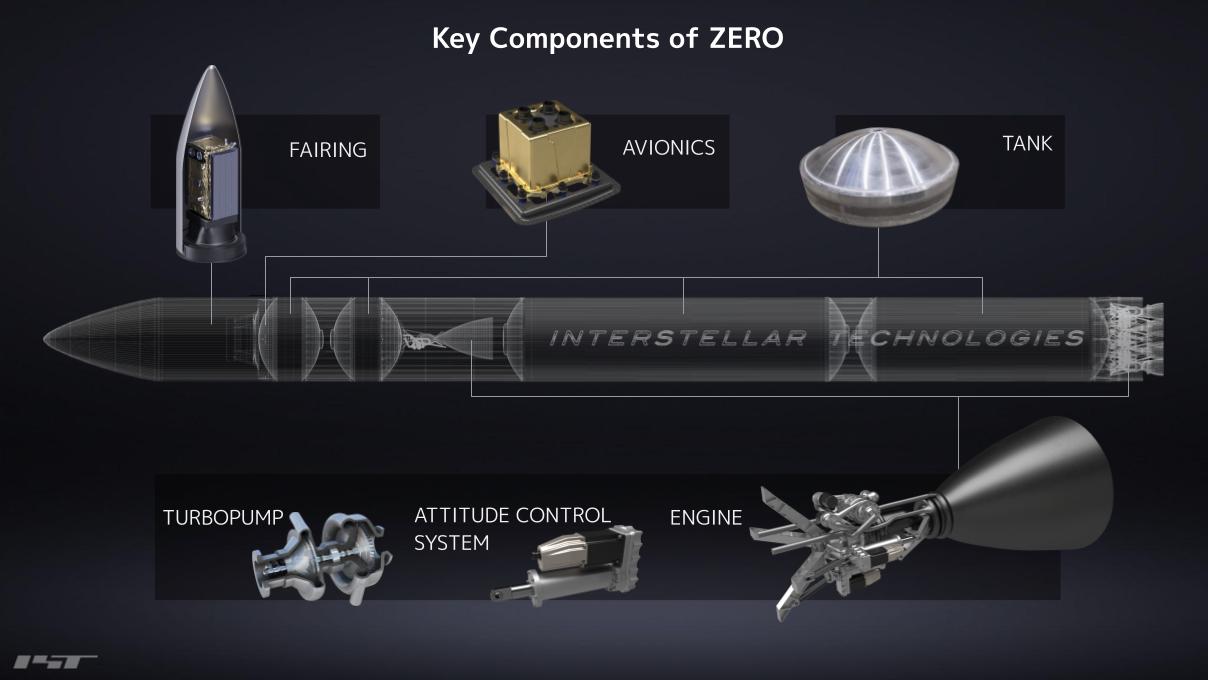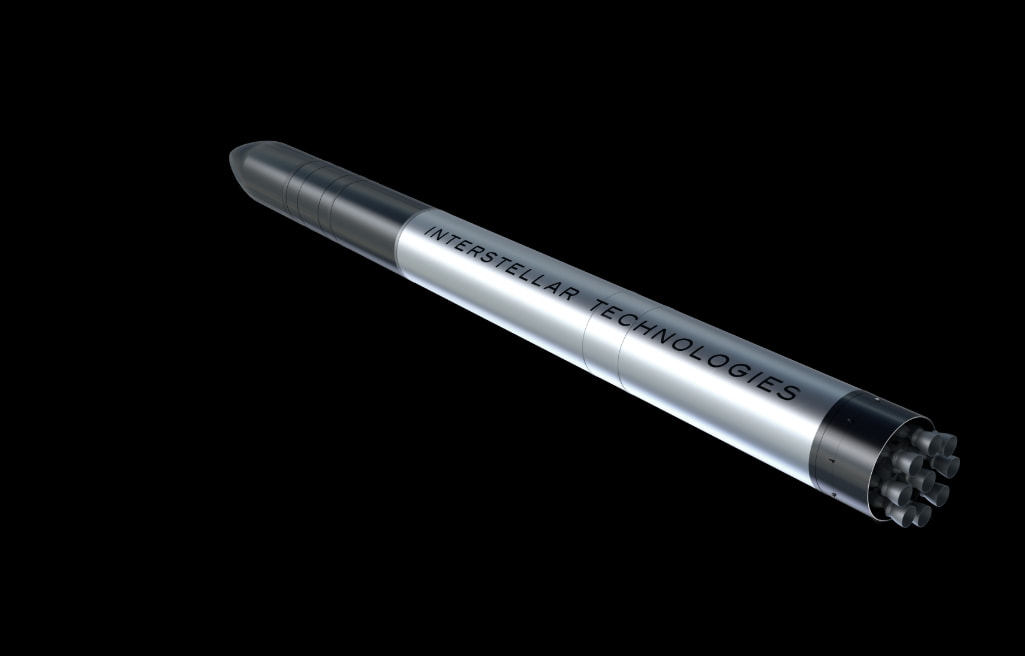DATE
Japanese Government Supports IST’s ‘ZERO’ Small Rocket for Enhanced Space Access
CATEGORY
TAG

Hokkaido, Japan – Interstellar Technologies Inc. (hereinafter referred to as “IST”), a comprehensive space infrastructure company committed to tackling global challenges through space transportation and utilization, is pleased to announce its selection for the Ministry of Education, Culture, Sports, Science and Technology’s ‘Small Business Research Program Phase 3 (SBIR Phase 3)’ (*1) on September 29, 2023. The maximum grant amount for its Phase 1 project period, which ends in September 2024, is 2 billion JPY.
The rising demand for launching small satellites worldwide has prompted the commitment to develop the cost-effective small rocket ‘ZERO.’ Through the development, IST aims to contribute to the self-sustaining growth of Japan’s space access capabilities and establish internationally competitive space transportation services for the global market.
For the Growth of Competitive Private Rocket Development
The space market experienced substantial growth in recent years, driven by the expansion of commercial space enterprises, increasing significance in national security, and the emergence of novel applications such as satellite constellations. A notable highlight is the rapid 18-fold increase in launches of small satellites weighing less than 600kg over the past decade, spanning from 2013 to 2022, with this trend expected to persist. In contrast, the market currently faces a shortage of space transportation services to meet the growing demand, leading to a bottleneck in the industry. Additionally, limited domestic rocket launch opportunities have led many domestic satellite operators to choose foreign launch providers.
IST’s initiative, aligned with the Small Business Innovation Research (SBIR) program (*2), seeks to advance the practical application of advanced technologies held by startups. This program is aimed at research and development-focused entities in fields such as space (space transportation/space debris), nuclear fusion, and disaster resilience. The allocated funding for the space transportation sector is 35 billion JPY throughout the SBIR scheme, with a maximum grant of 14 billion JPY per company.
The space transportation sector operates under the framework of the new Basic Space Plan, endorsed by the Cabinet in June 2023. Its primary objective is twofold: to enable all domestic satellites, whether government or privately owned, and to explore the possibility of launching via national core rockets or private rockets starting in the 2028 fiscal year. Additionally, it seeks to meet international demand.
In response, four companies, including IST, have been selected to receive support, with a primary focus on rocket development for flight validation until the fiscal year 2027 (*3).
*1 Source: Ministry of Education Website https://www.mext.go.jp/b_menu/houdou/2023/index.html
*2 is a program designed to encourage research and development-focused startups, streamline the seamless integration of their achievements into society under government oversight, and drive innovation.
*3 This program is structured into three phases, spanning from Phase 1 to Phase 3. The present stage corresponds to Phase 1. Subsequently, following two more stage-gate assessments, the final stage will focus on around two companies.
Competitive Pricing and Dedicated Launch Capability
ZERO is a small satellite launch vehicle designed to target the growing market for small-sized satellites in recent years. Building on the knowledge gained from the successful launch of the private suborbital launch vehicle ‘MOMO,’ the first of its kind in Japan’s private sector, IST is progressing toward the first launch of ZERO.
ZERO’s space transportation service distinguishes itself with competitive pricing—at less than 800 million JPY per launch (in mass production)—made possible through an integrated development and manufacturing process. Another key strength is its flexibility to provide customized launches tailored to the rising needs of satellite companies. For satellite companies in Japan, Asia, and Oceania, proximity to the launch site ensures convenience, reducing launch-related time and costs and enhancing overall value.
ZERO’s Capacity Boost: To establish Asia-Oceania Market Presence
With an eye on recent trends and the demand both locally and globally, ZERO is enhancing its capacity to launch satellites of up to 800 kilograms into Low Earth Orbit (LEO). This strategic move not only aligns with the objectives set forth in this initiative, but also contributes to the establishment of an independent domestic space transportation service. Simultaneously, it positions IST to establish a firm presence in the Asia-Oceania and European markets.
ZERO: Specifications
Height: 32m
Diameter: 2.3m
Total Weight: 71 ton
Propellant: Liquid Methane (Bio-Methane), Oxidizer: Liquid Oxygen
Number of Engines: 1st Stage: 9, 2nd Stage: 1
Payload Capacity: LEO 800kg / SSO 250kg *Future Maximum Capacity

Consumer Tech Utilization and Component Streamlining
ZERO is taking on the challenge of developing and manufacturing rockets with global competitiveness in response to the expanding international market. A key hallmark is its systematic approach of cost efficiency, spanning the entire lifecycle from design and manufacturing to testing, evaluation, and launch operations. This approach incorporates the integration of consumer-grade components and technologies, quality assurance ensured by a proprietary system, an expanded supplier network cultivated through mutually beneficial partnerships, a reduction in part count achieved through innovative manufacturing techniques, and the implementation of cost-effective practices during both assembly and operation.

Comment from Takahiro Inagawa, Interstellar Technologies Inc. CEO
We are honored by the recognition of our achievements, including rocket launches, which we have steadily accumulated. Space transportation is a cornerstone infrastructure for the future of the space industry. With the robust support provided through the government program, we are committed to advancing our technical validation and business development to meet the high expectations set in the upcoming stage-gate assessments.
Press Release | 20230929_Japanese Government Supports IST’s ‘ZERO’ Small Rocket for Enhanced Space Access

